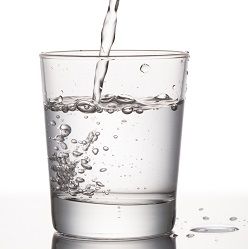Dehydration Signals Worse Stroke Outcome
Dehydrated stroke patients tend to do worse than those who are hydrated, a Johns Hopkins team found. The next question is whether all such ischemic stroke patients should get fluids when they arrive at the hospital, contrary to current recommendations.

About half of a group is ischemic stroke patients were found to be dehydrated when they arrived at the hospital, a Johns Hopkins Comprehensive Stroke Center team reported—and they did poorly compared to the patients who arrived hydrated.
Presenting a study at the American Heart Association/American Stroke Association International Stroke Conference in Nashville, Tenn., Mona Bahouth, MD, a Johns Hopkins Hospital stroke fellow, said that suggests all stroke patients should get fluids.
The problem is that rehydration poses a risk of hypervolemia, which can put stress on the heart and cause fluid to back up in the lungs.
In the study, Bahouth and colleagues followed 168 patients admitted with ischemic stroke. They found that stroke condition worsened or did not improve in 42% of the dehydrated group, but that only 17% of the hydrated group worsened or did not improve.
The patients’ progress, or lack of it, was tracked with MRI scans, and NIHSS scores.
Discussing the results, Bahouth said it is already known that about 60% of stroke patients are dehydrated, and that the condition may in itself cause strokes. “When patients don’t drink enough water, their blood gets sludgy,” she said. That could mean that as it travels through the brain, this thicker blood flows slowly and can back up in narrowed or blocked blood vessels.
The Johns Hopkins study did not involve hydrating these patients, but Bahouth thinks that is a topic for future trials.
“The beauty here lies in the simplicity of this potential treatment,” she said, “Rehydration is cheap and can be given to people even in the most remote locations.” But that does not mean these patients should be told to immediately drink water after the onset of a stroke. That could lead to choking.
The research also did not resolve the question of whether the patients’ dehydration signaled other medical conditions that could have contributed to their tendency to have poorstroke outcomes.
Still, Bahouth added, in general, “as people get older they tend to avoid drinking enough water, partly because they don’t want to have to use the bathroom as often—particularly if they have a disability.” That reluctance to drink water could be contributing to stroke risk, she said.
The study found that dehydration in the group of patients followed was not linked to race, gender, ethnicity or diabetes status. Patients with kidney disease were not included in the study.